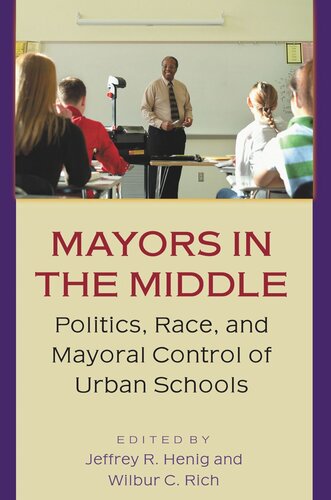

Most ebook files are in PDF format, so you can easily read them using various software such as Foxit Reader or directly on the Google Chrome browser.
Some ebook files are released by publishers in other formats such as .awz, .mobi, .epub, .fb2, etc. You may need to install specific software to read these formats on mobile/PC, such as Calibre.
Please read the tutorial at this link: https://ebookbell.com/faq
We offer FREE conversion to the popular formats you request; however, this may take some time. Therefore, right after payment, please email us, and we will try to provide the service as quickly as possible.
For some exceptional file formats or broken links (if any), please refrain from opening any disputes. Instead, email us first, and we will try to assist within a maximum of 6 hours.
EbookBell Team

0.0
0 reviewsDesperate to jump-start the reform process in America's urban schools, politicians, scholars, and school advocates are looking increasingly to mayors for leadership. But does a stronger mayoral role represent bold institutional change with real potential to improve big-city schools, or just the latest in the copycat world of school reform du jour? Is it democratic? Why have efforts to put mayors in charge so often generated resistance along racial dividing lines? Public debate and scholarly analysis have shied away from confronting such issues head-on. Mayors in the Middle brings together, for students of education policy and urban politics as well as scholars and school advocates, the most thoughtful and original analyses of the promise and limitations of mayoral takeovers of schools.
Reflecting on the experience of six cities--Baltimore, Boston, Chicago, Detroit, Cleveland, and Washington, D.C.--ten of the nation's leading experts on education politics tackle the question of whether putting mayors in charge is a step in the right direction. Through the case studies and the wide-ranging essays that follow and build upon them, the contributors--Stefanie Chambers, Jeffrey R. Henig, Kenneth J. Meier, Jeffrey Mirel, Marion Orr, John Portz, Wilbur C. Rich, Dorothy Shipps, and Clarence N. Stone--begin the process of answering questions critical to the future of inner-city children, the prospects for urban revitalization, and the shape of American education in the years to come.